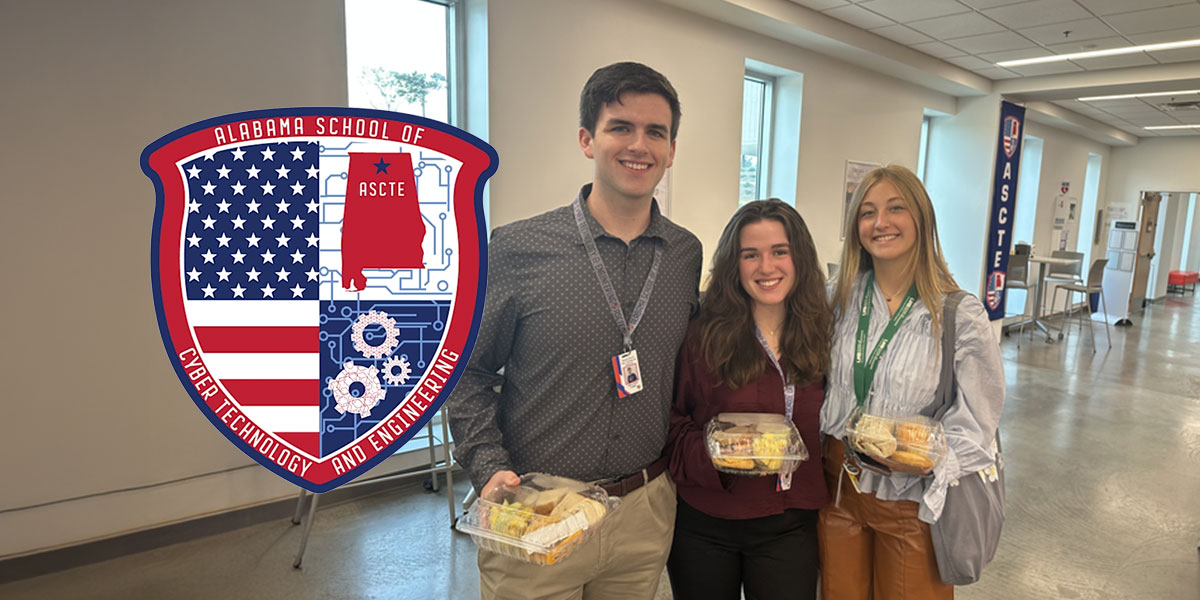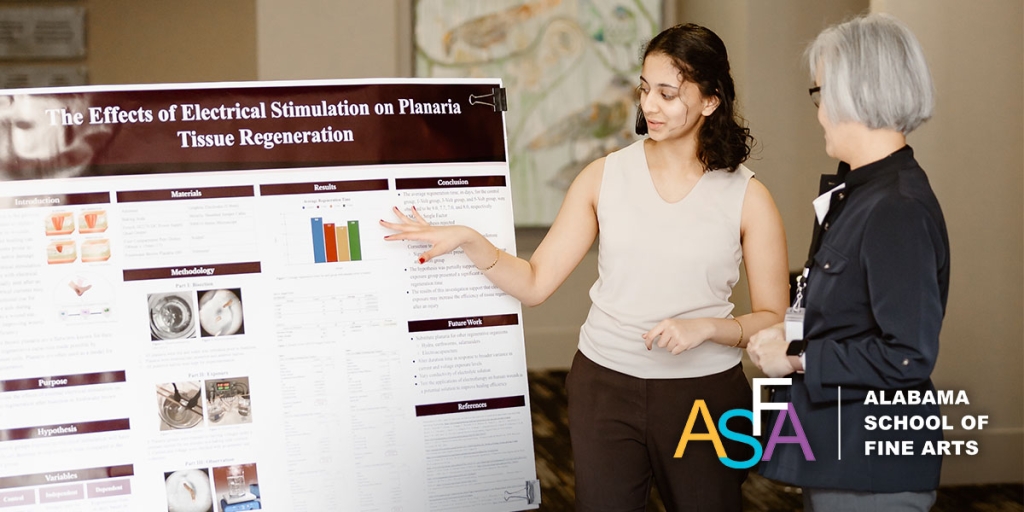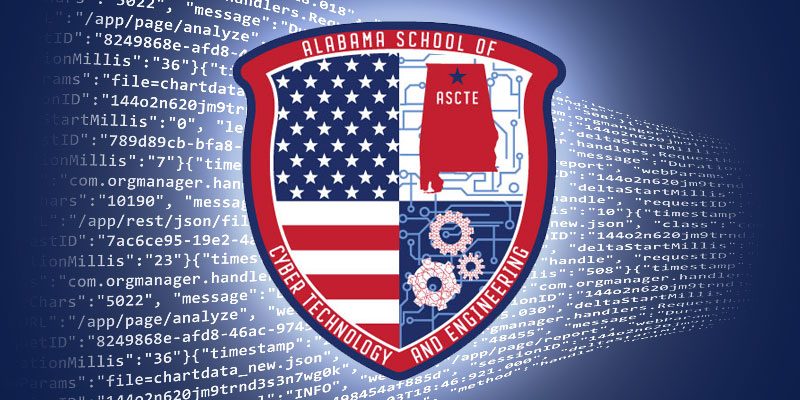When Buddy Watson was in eighth grade in rural Slapout, Alabama, a coding instructor overheard him talking about his passion for engineering and mentioned something that would change his life: a new cyber and engineering school opening in Huntsville.
That school, the Alabama School of Cyber Technology and Engineering (ASCTE), is the nation’s first public high school devoted entirely to cyber technology and engineering, and Watson was part of its inaugural freshman class.
“I didn’t sleep for probably 72 hours—do I follow my dream and take a risk, or do I stay comfortable in what I know?” Watson recalled about his decision to attend the residential school during the uncertainty of COVID-19.
Three years later, Watson’s gamble appears to have paid off. Now an incoming sophomore at Mississippi State University studying mechanical engineering with a minor in Russian, he’s already working in an internship related to his field, a trajectory that mirrors many of his ASCTE classmates.
Breaking the Traditional Mold
As a global leader in innovative education, ASCTE attracts more than 300 students from across Alabama to participate in a tuition-free educational experience that integrates cyber and engineering principles into every aspect of learning. History courses explore the evolution of technology rather than just dates and battles. Students tackle hands-on projects in robotics, coding, and systems design alongside traditional academics.
“History wasn’t just dates—it was the history of engineering, from ancient innovations to the revolutionary era,” Watson explained. “We studied how machines were made, how they were used, and the impact they had on society. Even in U.S. history, we studied the history of code, and how it’s been used for both the benefit and downfall of people.”
The school’s faculty includes industry subject matter experts who bring real-world expertise into classrooms, offering instruction in technical writing, social engineering, and even drone racing.
Expanding Statewide Impact
ASCTE’s influence extends beyond its Huntsville campus. Through its ACCEL program, the school delivers specialized STEM curriculum to school systems throughout Alabama, and it is leading the development of a statewide AI curriculum for the Alabama Department of Education.
The school has also pioneered what it calls a “whole child approach,” addressing academic, social, and emotional needs. The model has attracted statewide attention, with ASCTE’s counselor recently leading training sessions for peers across Alabama.
“When you fail, you collaborate with others who support you: a culture of helping,” Watson said. “Everyone here is here for a reason, and we want to help each other achieve what we came here for.”
Early Returns on Investment
ASCTE is not only preparing students academically—it’s also creating a pipeline of talent that is actively contributing to Alabama’s workforce, even while still in college. Many of these students have already returned to the state’s workforce through internships in engineering, cybersecurity, and related fields, gaining hands-on experience that complements their college studies.
Watson works in mechanical engineering during the school year, both remotely and in person. Another graduate who had planned to attend college on the West Coast chose to stay in Alabama after receiving a competitive position with a federal agency.
“The environment that ASCTE fosters allows students to explore, take on real responsibilities, and apply what they’ve learned in practical settings,” Watson said.
A Model for the Future?
As Alabama continues to attract major technology and manufacturing investments, from Facebook data centers to automotive plants, the state’s ability to produce skilled workers has become increasingly critical. ASCTE represents one approach to addressing those workforce needs by starting at the high school level.
The school’s success in its first few years suggests that this unique type of specialized education may offer a viable path for other states facing similar workforce challenges. But for now, Alabama appears to have a head start with the nation’s first school of its kind.
For Watson, who once wondered whether to take a risk on an untested school, the results speak for themselves.
“The environment at ASCTE allows you to explore, fail, and try again, and that freedom to experiment is what inspired me to fully commit to engineering,” he said.
To learn more, visit ascte.org.









